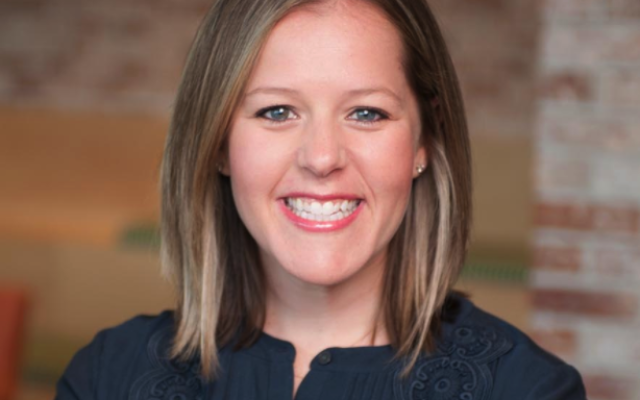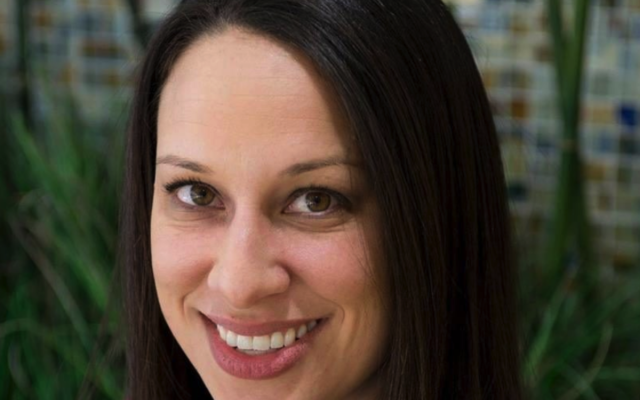Slingshot Fund’s ’10 To Watch’ Atlanta Winners
The Blue Dove Foundation and the Jewish Fertility Foundation have been named to the Fund’s 2022 “10 To Watch” list of American Jewish nonprofits.
Two Atlanta philanthropic startups have been named to the Slingshot Fund’s “10 To Watch” list of American Jewish nonprofits for 2022: The Blue Dove Foundation, launched in 2018 to raise awareness and understanding of mental illness in the Jewish community, and the Jewish Fertility Foundation, which was founded in 2015 to offer Jewish families financial assistance for fertility treatments and other forms of support.
The selection is designed to encourage charitable entrepreneurship by young Jews in America and raise awareness of those organizations that are doing work that is particularly noteworthy.
The Blue Dove Foundation was founded by Alysa Berman, Justin Milrad and Daniel Epstein, of The Berman Center in Atlanta, which specializes in treating substance abuse and other mental health issues. The organization offers workshops, programs and publications aimed at what they call “Quieting the Silence” about such issues as addiction and severe depression in the Jewish community.

Executive Director Gabby Spratt, who joined the foundation soon after it was founded four years ago, says, “For us, it was really important from day one to normalize the discussion around mental illness, to create a strong, educated, welcoming, engaged community around this. Because when we have a healthier community, a more open, a more welcoming community, our Jewish life is going to be vibrant and we’re going to thrive. So I think that, if we can provide tools, if we can provide an understanding, open heart, we can really create a healthier space for individuals.”
The organization offers mental health resources appropriate to the various Jewish holidays. For example, it has created an alternative seder plate for the Passover holiday that emphasizes six actions that provide support and care of the self during the year. The seder plate is designed, in the words of the foundation, “to use Passover as a time to stop and reflect not only on the Exodus but on our own mental health. On those difficult days when we feel stuck in a metaphorical Egypt, the mental health Seder plate can offer us inner peace.”
Both Spratt and Jennifer Greenberg, the organization’s co-president, were attracted to the work of the Blue Dove Foundation after losing family members to suicide.
Meanwhile, the Jewish Fertility Foundation has recently expanded its work to four cities in the United States, including Cincinnati. The Slingshot honor hailed the foundation for the work it does to provide financial assistance and emotional support for Jewish families facing medical fertility difficulties in the city.
Elana Frank, the founder of the JFF, has a personal connection to the organization’s mission. She has experienced fertility issues herself and has three children, two of whom were born in Israel, where she once lived. For those struggling with infertility, Israel offers a comprehensive medical program through its national healthcare service.
But in America, fertility treatments are not covered by medical insurance, which inspired Frank to launch the foundation to provide direct financial grants to couples and individuals. It also encourages a more open discussion of infertility in segments of the community in which it has often been nonexistent.

“One of the first innovation grants we received was from the Jewish Federation of Greater Atlanta, specifically for the Orthodox community here, where nobody really wanted to talk about this,” Frank says. “And so we created a one-on-one program where it was private and we could meet the needs of the more traditional community. I think more people are open to talking about it, but it takes years to break that wall down.”
According to Frank, it is not just the Orthodox community. For so long, she feels, it has been a taboo subject in the Jewish community at large.
“In my mother’s and grandmother’s time, it was a very private matter between a husband and a wife,” Frank says. “It was like it wasn’t happening. There was a huge stigma attached to talking about it. Times are changing, but it’s still very, very stigmatized and private to talk about these things.”
Both women have been part of the Jewish Women’s Fund of Atlanta “Agents of Change” training program and have been recognized by the Atlanta Jewish Times as part of its “40 Under 40” list. This latest achievement gives both leaders hope that more recognition of their work on the national stage is in store.
“The more we begin and continue to eradicate the shame and stigma that’s there,” Spratt says, “the more the community will welcome and support the open conversations we are encouraging.”
- News
- Local
- Bob Bahr
- nonprofit
- philanthropy
- Slingshot Fund
- Blue Dove Foundation
- Jewish Fertility Foundation
- Alysa Berman
- Justin Milrad
- Daniel Epstein
- The Berman Center
- Addiction
- depression
- Gabby Spratt
- Mental Health
- Seder
- Passover
- Pesach
- Elana Frank
- Jennifer Greenberg
- jewish federation of greater atlanta
- Agents of Change




comments